By Zoe Barois
Like many other countries, Bangladesh is working to develop it’s Food Systems Transformation Action Plan. This will be presented during the United Nations Food Systems Summit Plus 4 Stocktaking event. On November 6 and 7, Foresight4Food collaborated with GAIN Bangladesh to host a workshop on how foresight could contribute to the development of the Action Plan.
If transforming food systems were easy, it would have been done! But it’s not. Discussions dug into deeper questions about HOW change can be brought about and the implications of this for action in Bangladesh.
The participatory and dynamic workshop brought together policymakers, researchers, youth leaders, key UN organisations and members of the private sector. The workshop served two purposes, first to help clarify directions for the Action Plan, and secondly, to take forward the work on using foresight to help drive food systems change.
Discussion during the workshop focused on the five commitment pathways:
- Nourish all people
- Boost Nature-based Solutions
- Advance Equitable Livelihoods, Decent Work & Empowered Communities
- Build Resilience to Vulnerabilities, Shocks and Stresses and
- Accelerating the Means of Implementation
Validating scenarios for the future of food systems in Bangladesh
It was great to engage in discussions around four visual future scenarios. These were developed using rich pictures during a lively multistakeholder event in June earlier this year. Future scenarios are an excellent way to open discussions around what different stakeholders see as a desirable future. Interestingly, these do not always align as the implications would vary depending on what outcomes you’re seeking. At the end of the day, a poor farmer will desire different things when compared to a corrupt businessman!
The scenarios displayed different outcomes based on these uncertainties:

Equity – Would there be high or low levels of equity?
Climate resilience – we all know that climate change is happening, but whether Bangladesh will have high or low climate resilience is definitely in question
Healthy food consumption – Would people in Bangladesh be eating traditional diets or would they follow a diet that resembles something like a North American diet, something seen in many parts of the world.
Business structure – would Bangladesh have a diversified or consolidated business structure, dominated by a few large conglomerates
Creatively naming these scenarios helps convey the messages. So we had a fun exchange where groups came up with poetic Bangladeshi names to better describe the scenarios. Part of the validation will be to update these, helping spur action towards the most desired and away from the least desired future.
Unpacking five critical issues
Key issues blocking progress towards food systems change in Bangladesh relate to:
- The cost of a healthy diet in addressing malnutrition
- Climate resilience
- The role of social protection programmes in shaping food systems change
- Fruit and vegetable production
- Land use change and dietary patterns
These key themes were the result of a longer participatory process that emerged from the food systems map of Bangladesh. Diving into these topics, FoSTr’s five research partners shared their work on the key trends, challenges, and opportunities within each theme. Exploring these themes using a future lens can help clarify desired directions of change.
The power of causal loop mapping
How often do you get policymakers, youth and researchers around one table, heavily immersed in discussion using sticky notes and flip charts? My response: not often enough! This combination of actors is rarely seen but proves oh so valuable in uncovering insights previously hidden from each sector. The tool casual loop mapping, may be familiar to some. It’s a systems thinking tool where the interconnections between elements are mapped and the direction of causality identified. It’s a great way to map out the elements within a system and identify levers of change – small actions that lead to a large impact. For each of the commitment pathways, this casual loop mapping was performed. Insights like forming alliances between farmers and entrepreneurs to boost sustainable farming practices, or using the power of advertising to improve healthy food consumption and inspire healthy lifestyles were uncovered.
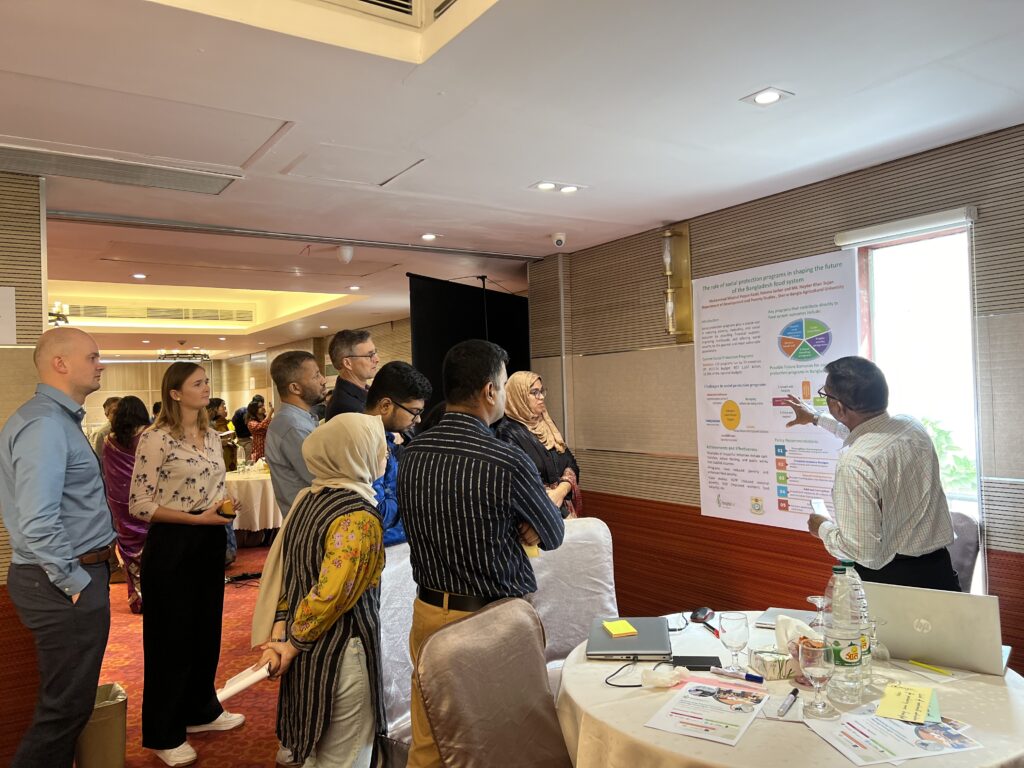
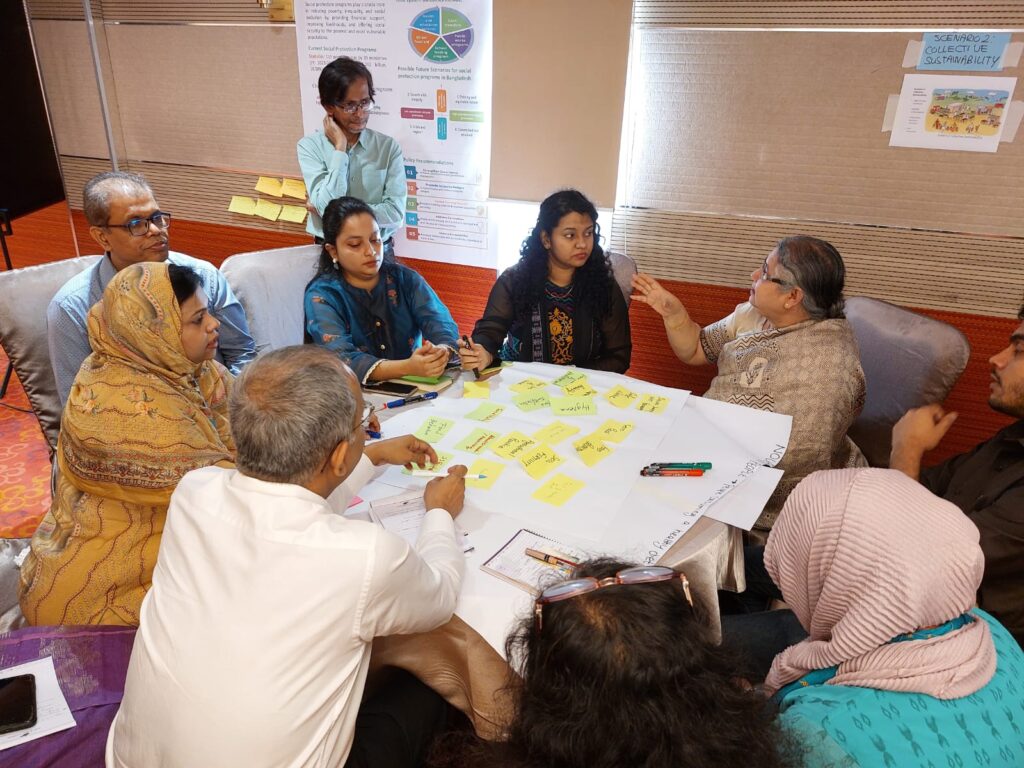
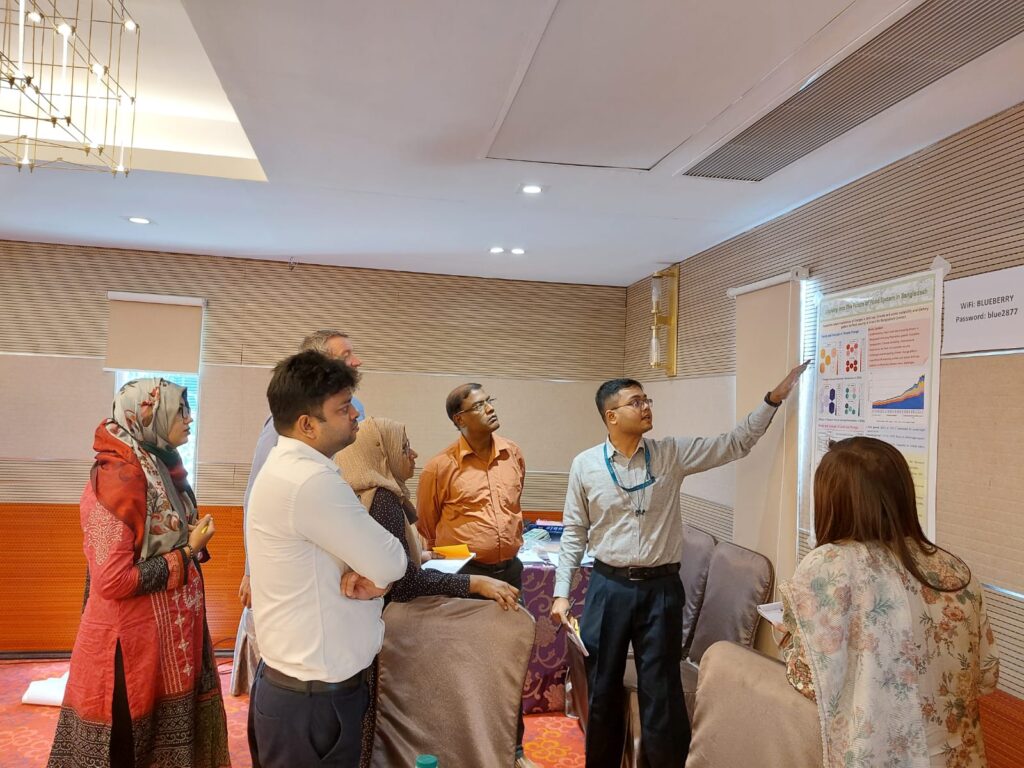
Reflections
Whilst having many people come together who don’t usually converse – the so-called ‘breaking the siloes’ is a huge achievement in itself, the task of writing yet another policy document looms above our heads. Everyone in the room has appeared here for a reason – which I hope is to create the change we need, a future that we all desire. After such positive discussions and recognition that we need to act – and act now, the fear I have is we will all fall into the same trap. The trap of being consumed by our busy agendas and becoming frustrated that yet another policy document has to be produced. Leading to un-actionable and hugely categorised actions. We don’t want this Plan of Action to become another document that has great suggestions but continues to lack the HOW. Let us think about how will these actions be implemented.
Foresight helps us to keep the bigger picture in mind, where do we want to go and where do we want to be in the future? Let’s use this thinking to help us prioritise and select key activities to implement. Working together to do so.
The Foresight for Food System Transformation (FoSTr) programme, led by Foresight4Food, is now two years into its journey of helping shape more sustainable, inclusive, and resilient food systems. With increasing uncertainties affecting global food systems—from climate change to economic challenges—the need for foresight and scenario analysis has never been more critical.

Running from 2022 to 2025, the programme is funded by the Dutch Ministry of Foreign Affairs through an IFAD grant. Based on the approach of the Foresight Framework, the programme focuses on supporting four key countries: Bangladesh, Jordan, Kenya, and Uganda.
Since its commencement, we have seen tremendous strides in advancing the key objectives of the FoSTr programme across multiple fronts. This blog highlights the progress and impact of the FoSTr programme and the exciting path ahead.
In-Country Impact: Strengthening Foresight Processes
In each of the focus countries, national foresight processes gained momentum, engaging a wide range of stakeholders, including government bodies, research institutions, and community representatives. In total, 403 individual stakeholders participated in in-country workshops across the four countries, contributing to meaningful conversations about the future of food systems.
Here is a quick overview of FoSTr programme’s progress in each of the focus countries:
Bangladesh – Strong government buy-in has been established, with collaboration from the Ministry of Food and other key players, all contributing to the national food system transformation agenda.
Jordan – Partnerships with the Ministry of Agriculture and other government entities have positioned FoSTr as a key advisor, particularly in driving forward the work of the newly established Food Security Council.
Kenya – Foresight analysis has been particularly active at both the national and county levels, with significant involvement from the Nakuru and Marsabit County governments.
Uganda – FoSTr is closely aligned with the Uganda Planning Authority, helping develop foresight tools for future food system planning.
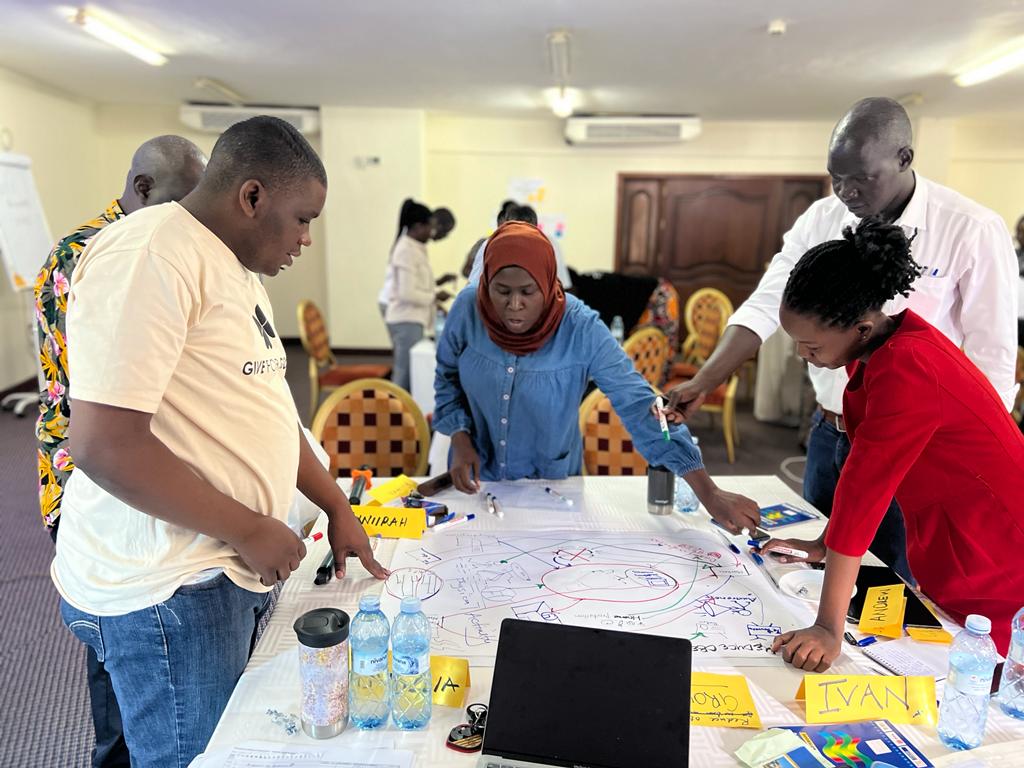
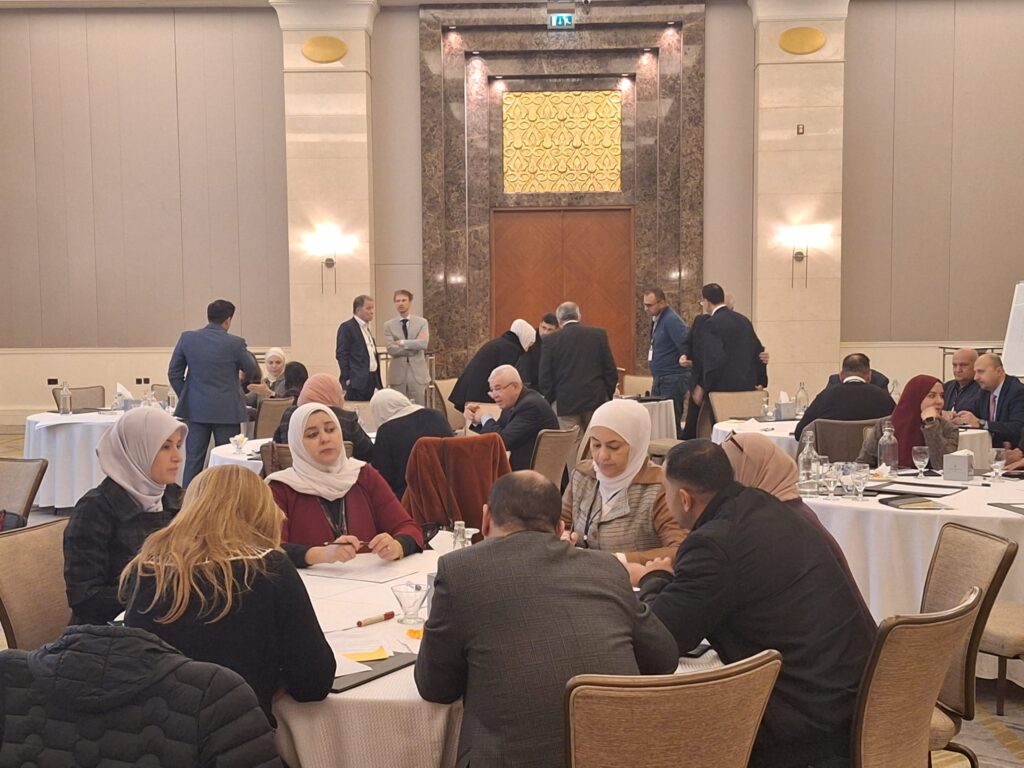
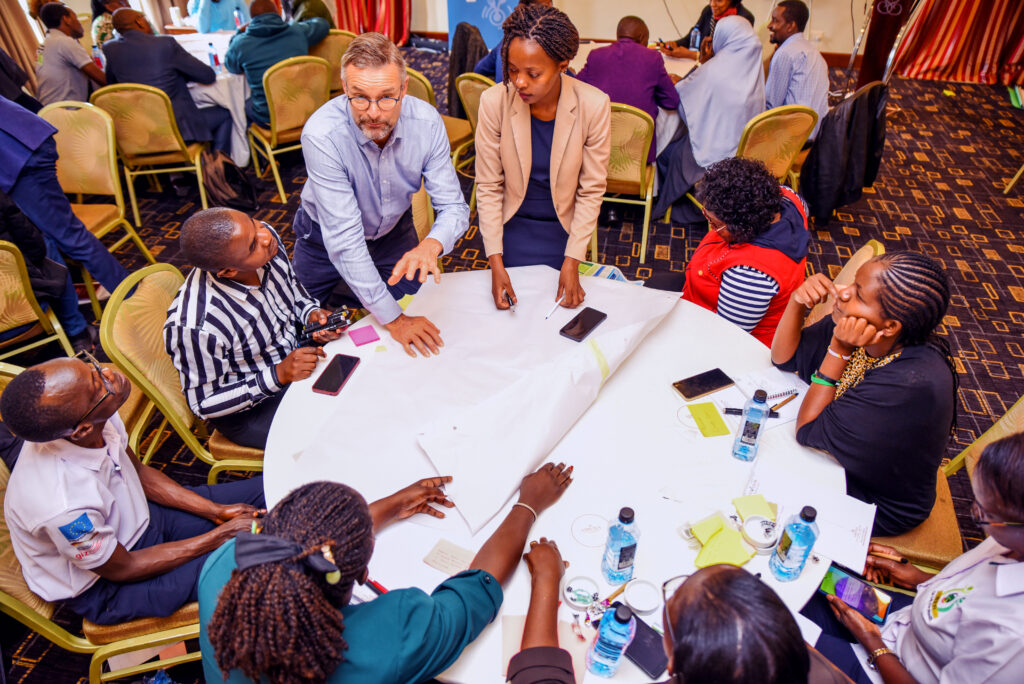
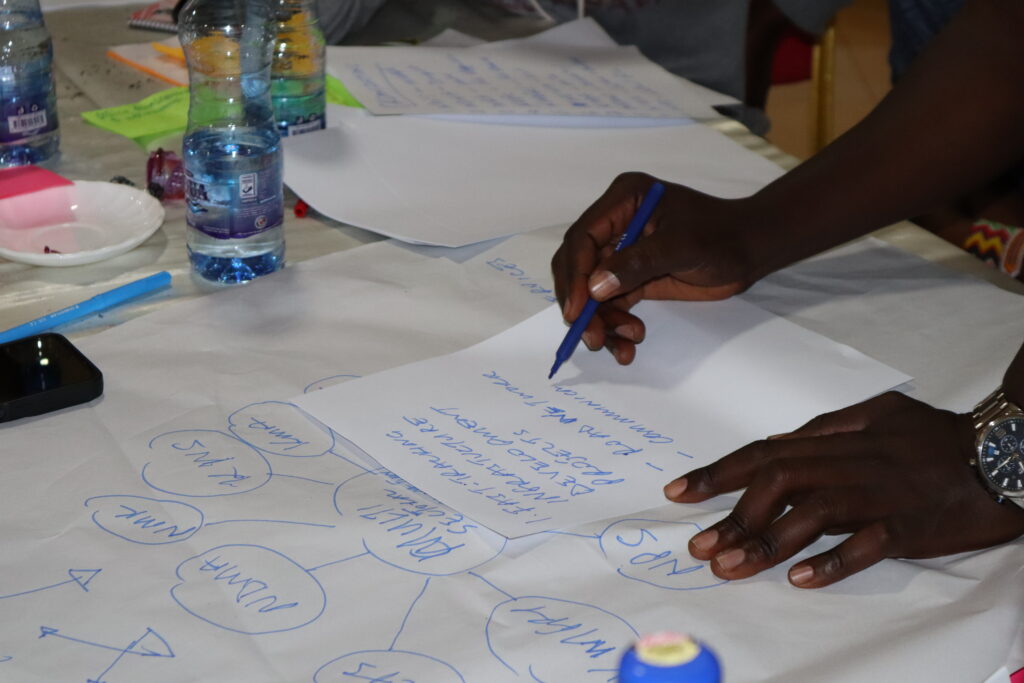


Global Collaboration: Building a Brokering Hub
On a global scale, FoSTr expanded its network of foresight and food systems practitioners, deepening collaboration across organizations like the Forum for Agricultural Research in Africa (FARA), the Global Alliance for Improved Nutrition (GAIN) in Bangladesh, and a number of renowned research institutes in the focus countries.
The work of FoSTr programme was very well-received at the 4th Global Foresight4Food Workshop in Dhaka, where more than 120 foresight practitioners from Asia, Africa, and Europe gathered to share insights on foresight methodologies and food system challenges.
Read also:
Using Foresight to Re-imagine the Future of Food Systems: Foresight4Food holds its 4th Global Meeting – by Jim Woodhill
In a highly interactive week, participants engaged in a masterclass on foresight approaches, shared their experiences and lessons, heard from thought-leaders on food systems and foresight, and identified ways of strengthening foresight practice in their own countries and regions…
A Start to the Foresight Process: Food Systems Maps
As a part of the foresight process, there is a need to have a collective understanding of the food system in different contexts. Hence, the Foresight4Food FoSTr team in collaboration with our facilitators and research partners in each focus country, created comprehensive food systems reports mapping the dynamics, trends, drivers, and activities within the food system.
These Food System Maps offer an initial snapshot of the current food system status in the focus countries and are intended to inform a more comprehensive foresight process. As the dynamics, trends, drivers, and activities within the food system continually change, these reports welcome ongoing reflection and discussion.
Knowledge Base
FoSTr also played a vital part in strengthening the Foresight4Food Resource Portal, which provides access to Foresight Studies, key data around Food System Drivers and Outcomes, a database of Foresight Initiatives, and other academic literature that helps food systems practitioners develop better Foresight Models.
The Foresight4Food Resource Portal is regularly updated with the latest research and emerging studies as well as products and resources that come out of different programme activities.
Read also:
The Complexity of Global Drivers of Food System Transformation – by Bhawana Gupta
The global food system needs to be transformed. It needs to deliver better health and improved livelihoods while protecting the environment and minimizing negative social impacts. However, there are many interconnected factors playing a role. Food Systems are complex…
Overcoming Challenges
Like any ambitious programme, FoSTr encountered its share of challenges. These included navigating political instability in some focus countries. Meanwhile, navigating the political economy of food systems—especially where entrenched power dynamics and vested interests are at play—required FoSTr to strike a delicate balance between supporting ongoing policy processes and introducing more transformative ideas for change.
The Way Forward
As the Foresight4Food FoSTr programme enters its third and final year, several key objectives will guide the remaining activities:
Brokering Foresight Processes: Continue to build connections with national stakeholders and existing initiatives, ensuring that foresight insights are integrated into policy-making and planning processes.
Capacity Building: Organize intensive face-to-face training workshops to further enhance foresight facilitation skills and broaden participation from underrepresented groups, including the private sector and youth.
Scenario Analysis and Policy Recommendations: Complete the ongoing scenario analyses and translate these into clear policy recommendations that will guide national food system transformation agendas.
Sustaining Momentum Beyond 2025: Establish sustainable communities of practice that can continue to drive foresight activities beyond the programme’s official end.
Conclusion: A Transformative Journey
In an era where global food systems are under immense pressure due to climate change, population growth, and shifting socio-economic landscapes, forward-thinking approaches are critical to ensuring food security and sustainability.
The Foresight4Food FoSTr programme has made significant headway in its mission to advance food system foresight processes in Bangladesh, Jordan, Kenya, and Uganda while building a broader global network of foresight practitioners. As we look ahead to the final year, the focus will be on translating foresight insights into action, empowering national stakeholders, and ensuring that the work of FoSTr continues to have a lasting impact on food systems worldwide.
Bonus: FoSTr Facilitators Insights
As the Foresight4Food FoSTr programme continues to foster systemic change in global food systems, the programme facilitators will be sharing their observations on the work and progress of FoSTr programme in their respective countries through insightful blogs. Watch this space and our social media channels for more updates.
By Jim Woodhill, Lead Foresight4Food Initiative
Why do we need to transform our food system and how can foresight help?
The way food is consumed and produced is central to the polycrisis afflicting today’s world – said Ravi Khetarpal (APAARI), Amina Maharjan (ICIMOD), and Patrick Caron (University of Montpellier) in their keynote presentations at the 4th Global Foresight4Food Workshop.
The Foresight4Food Initiative held its fourth global gathering in the beautiful setting of BCDM Savar, Dhaka from June 3 to 7, 2024. Over 120 foresight practitioners from across 22 countries came together to share ideas and discuss the latest thinking on applying foresight to the challenges of transforming food systems. The event was hosted by the Government of Bangladesh and the Global Alliance for Improved Nutrition (GAIN) Bangladesh, with support from the Food and Agriculture Organization (FAO) and the World Food Programme in Bangladesh.
In a highly interactive week, participants engaged in a masterclass on foresight approaches, shared their experiences and lessons, heard from thought-leaders on food systems and foresight, and identified ways of strengthening foresight practice in their own countries and regions.
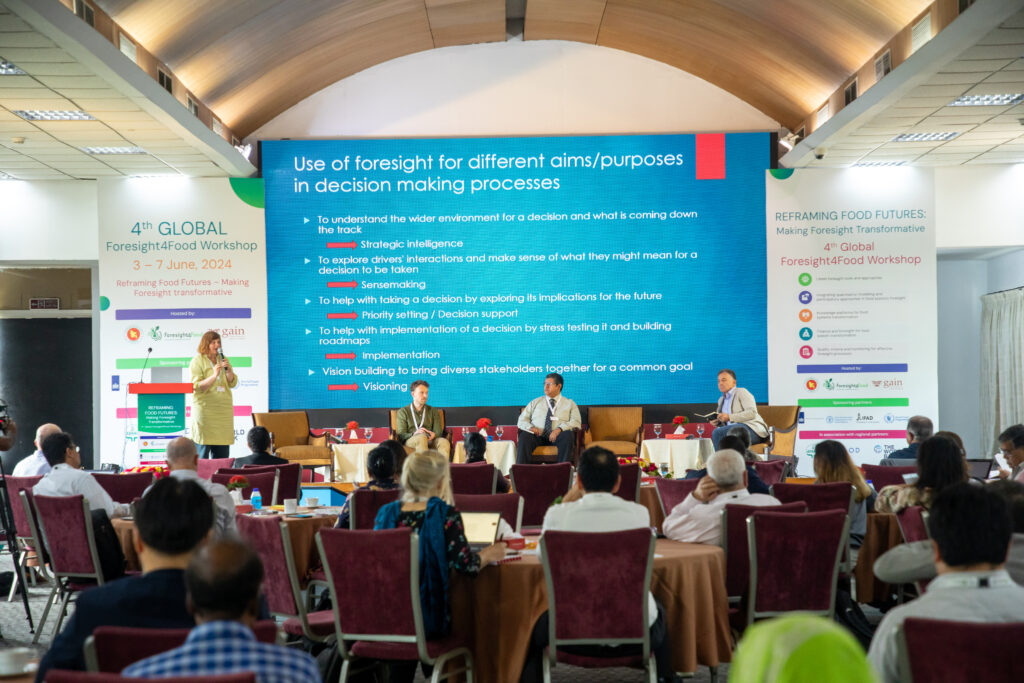
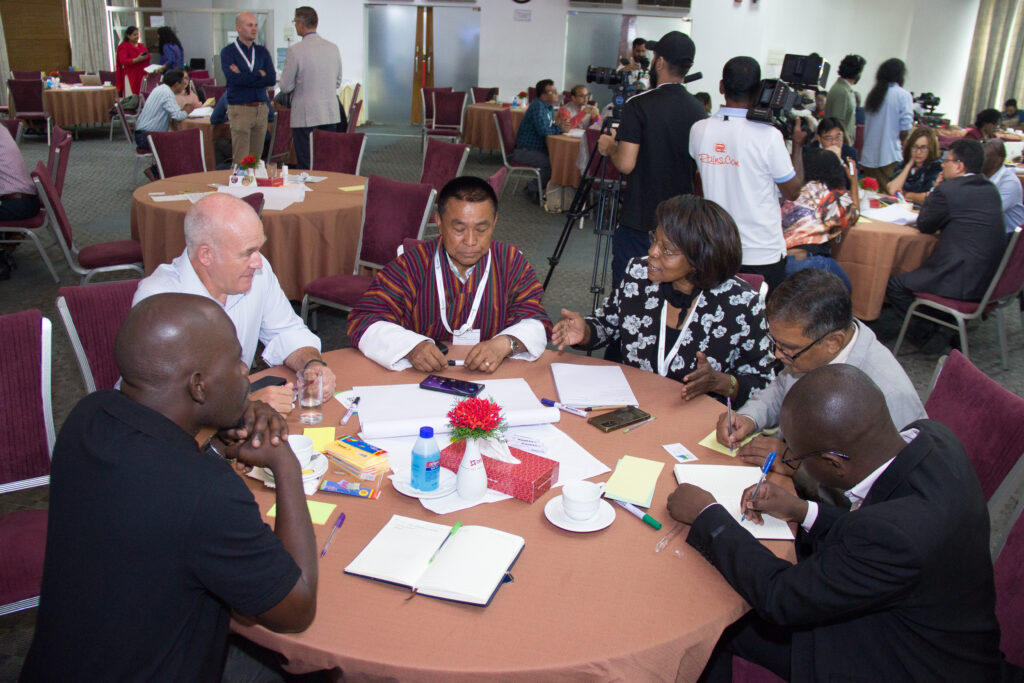
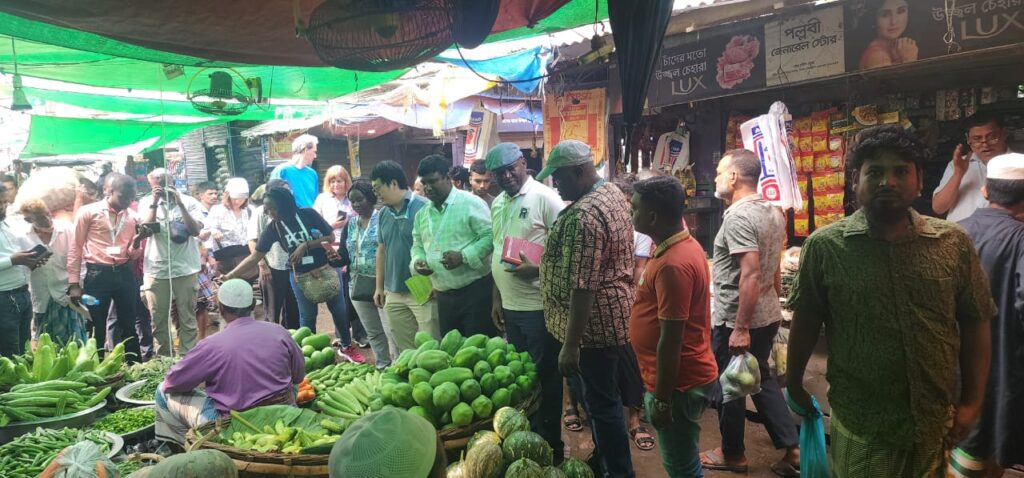
What does the future hold for our food systems?
Feeding the world contributes over 30% of greenhouse gases, and without change increasing population and wealth will drive this even higher. Meanwhile, diets are changing, often towards more unhealthy options. It is estimated that, by 2035, diet-related poor health could cost the global economy about 3% of GDP annually: this is the same negative impact that COVID-19 had on the economy. Environmentally, land use associated with food production is the main reason for the world’s massive loss of biodiversity and collapsing ecosystems.
And all of this is set against a background of increasing geopolitical tensions, and uncertainties for trade and access to resources.
As discussed during the different workshop sessions, foresight helps to understand the longer-term consequences of these trends, and the risks of “business as usual”. Even more importantly, participatory foresight and scenario development engages stakeholders in imagining how the future for our food systems could be different, in order to achieve sustainability, equity and resilience.
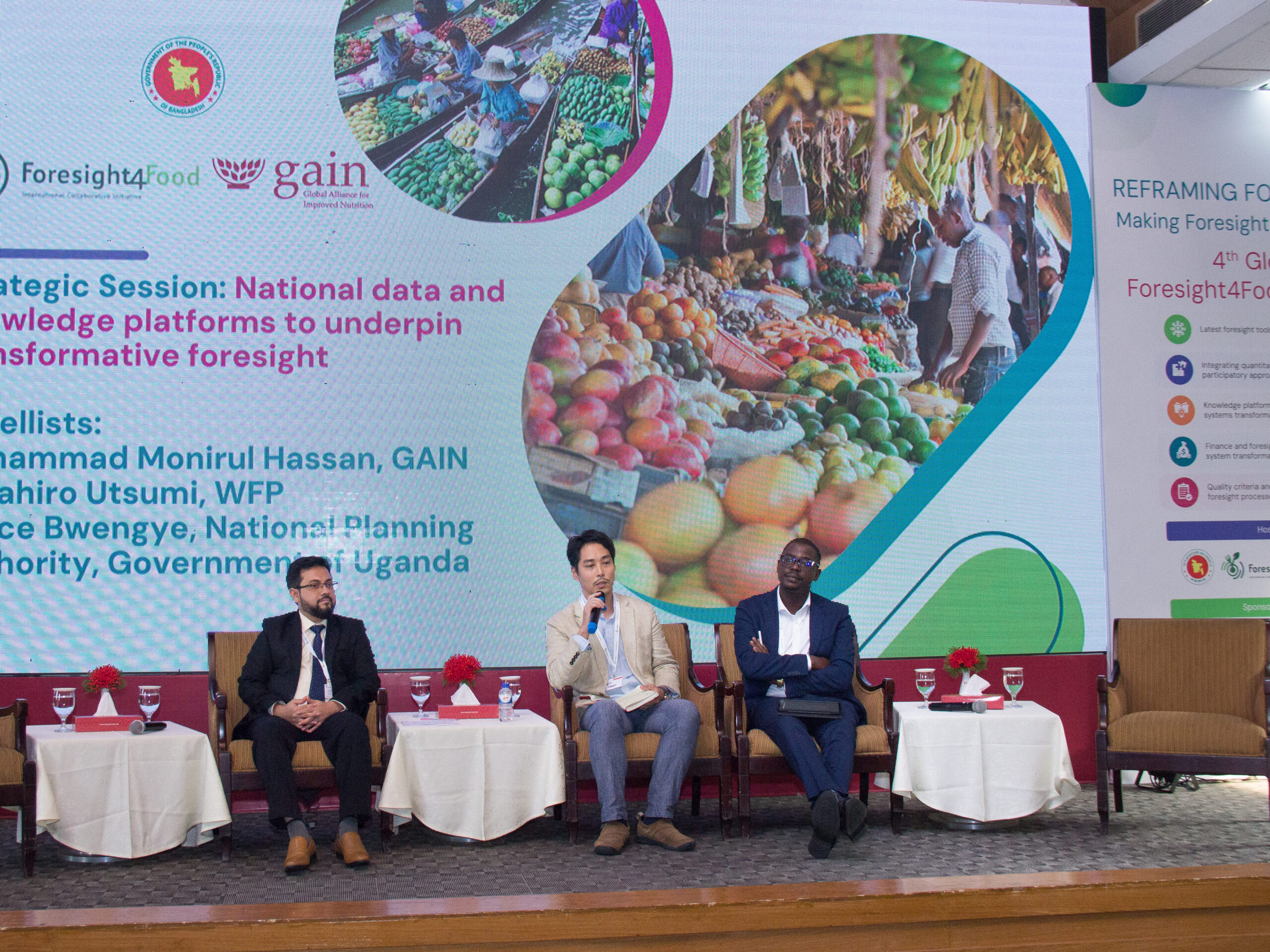
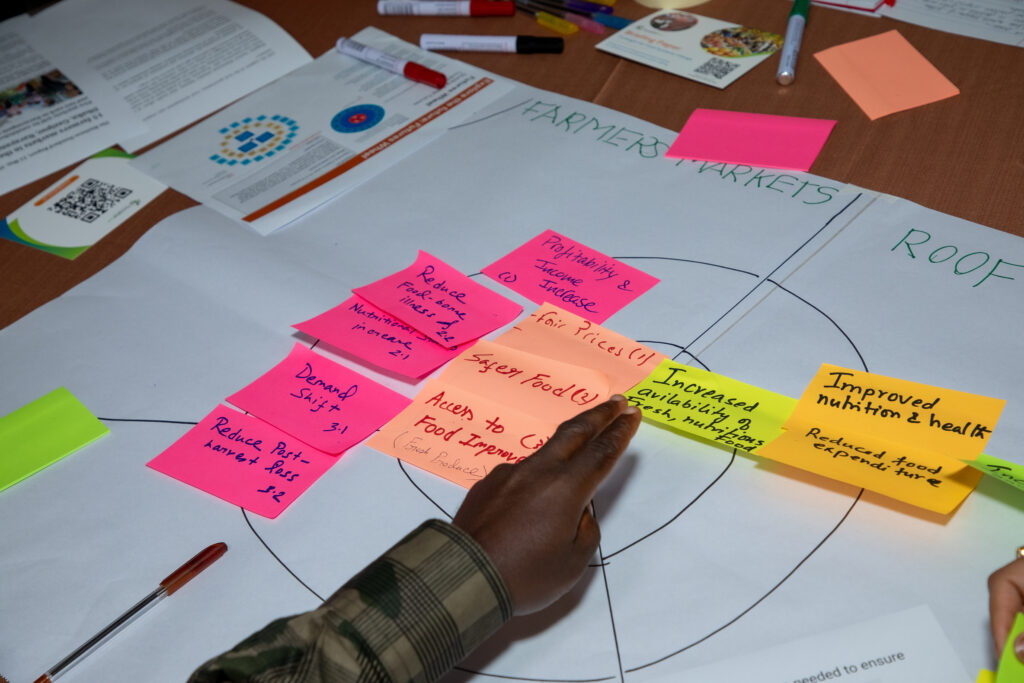
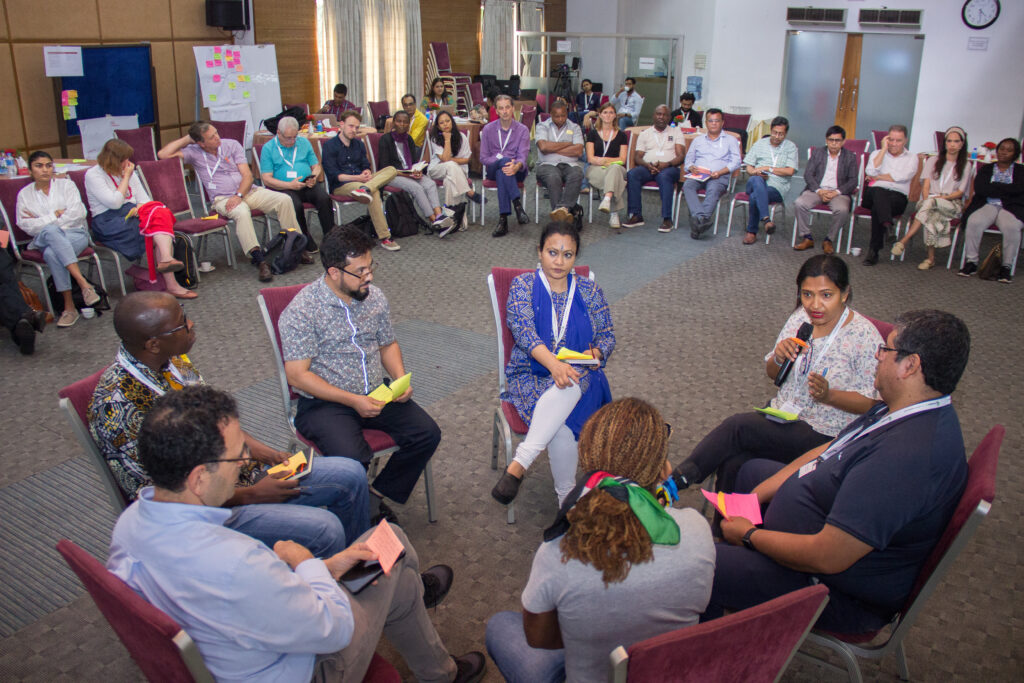
Highlights of the week included:
- Sixteen case studies on the use of foresight across Africa, Asia and the Middle East shared by participants – offering a wealth of insights, lessons and inspiration.
- Senior-level engagement from the Government of Bangladesh with insight into how foresight is seen as a key tool for helping to achieve their goals for food systems transformation.
- A deeper look at simulation modelling for foresight, and how a combination of qualitative and quantitative approaches can bring a range of important insights.
- Reflections on ensuring foresight processes are inclusive and consider gender dynamics.
- Six thematic sessions on cutting edge foresight issues which helped in mapping out a forward agenda for Foresight4Food.
- Strategic sessions on knowledge platforms and financing of food systems.
- Field trips where participants used insights from food system issues in Bangladesh to stimulate discussion on the future of the food system and sharing of cross-country lessons and experiences.
From my perspective, the key takeaways from the week were:
- The value of connecting foresight with a deeper understanding of the political economy of systems change, which is needed to help tackle the structural barriers to transforming food systems.
- Recognition of the critical importance of effective multi-stakeholder processes at national and local levels in driving food systems change, and the value of the foresight for systems change approach in supporting such processes.
- The necessity of increasing and reconfiguring investments in food systems and the need for this to be informed by the longer-term perspectives that foresight can bring.
- The value of integrating participatory foresight processes with quantitative modelling and use of data, while realising the constraints of limited food systems data at national and local levels.
- The importance of having foresight units and processes institutionally embedded in government, with a mandate and scope to challenge policy assumptions.
- A recognized need and growing demand for enhancing the capacities of policymakers, researchers and think tanks/consultants to design, facilitate and use foresight processes.
Participants left highly motivated to take forward the foresight work they are involved in and to help support the Foresight4Food network. The event ended with strong calls for the network to collaborate in helping to set up regional foresight support hubs across different continents.
By Zoe Barois
Over the past year, the Foresight4Food Foresight for Food System Transformation – FoSTr team and our country partners have begun a foresight process in Jordan, Uganda, Kenya, Bangladesh, and Niger to support national food system transformation. As an initial step, a collective understanding of the food system in different contexts was needed. Hence, the Foresight4Food team in collaboration with our facilitators and research partners in each focus country, created comprehensive food systems reports mapping the dynamics, trends, drivers, and activities within the food system.
Being a lead on food system mapping, I’m sharing my reflections on the process in this blog.
We started with a scoping phase using the Foresight4Food foresight framework, which allows for flexibility and contextual adaptation. This phase involved identifying key stakeholders, understanding their interests, and assessing current and future concerns.
Our next goal was to foster a shared understanding of the food system’s key dynamics, outcomes, drivers, and activities to identify trends and uncertainties. This collective understanding forms the foundation for a participatory process using foresight and scenario analyses to support meaningful food systems change.
The second step, system mapping, was done in collaboration with country facilitators and research teams. We used the Foresight4food framework to identify key food system outcomes, activities, and drivers, considering their interaction with the broader environment. Data were compiled from national and global sources and generated through participatory workshops.
In addition to providing an overview of current status and trends, we conducted a deeper analysis using causal loop diagrams created with research partners during workshops. This approach helped identify trade-offs and synergies, informing actions to improve food system outcomes. We also noted recurring patterns that affect feedback loops, further clarifying the system’s structure.
These reports offer an initial snapshot of the current food system status and are intended to inform a more comprehensive foresight process. As the dynamics, trends, drivers, and activities within the food system continually change, these reports welcome ongoing reflection and discussion.
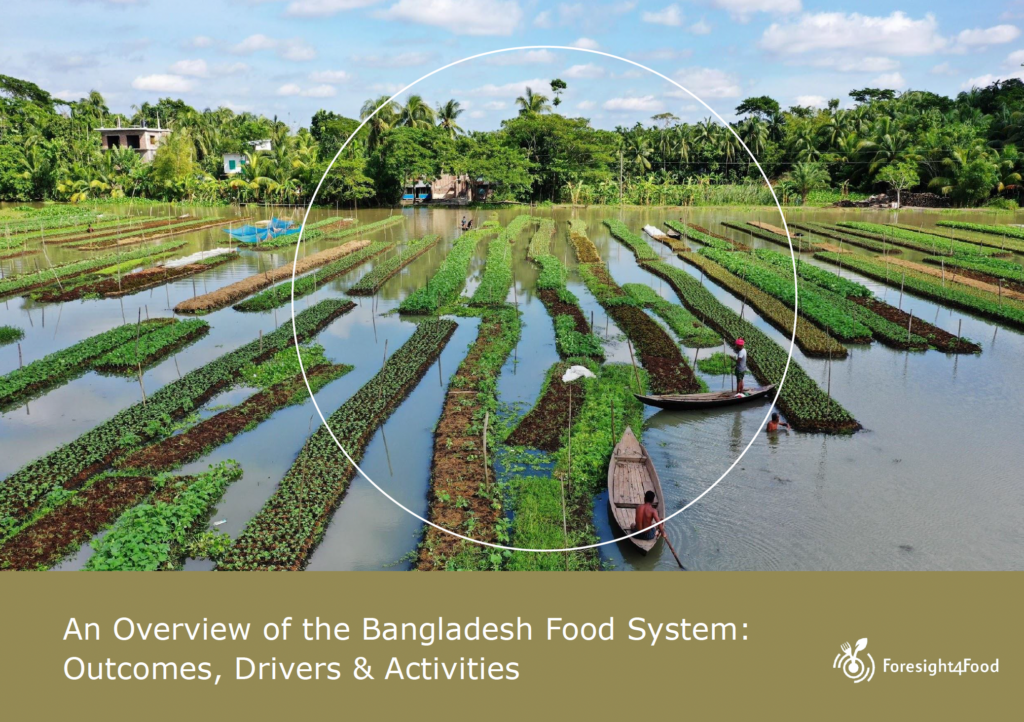
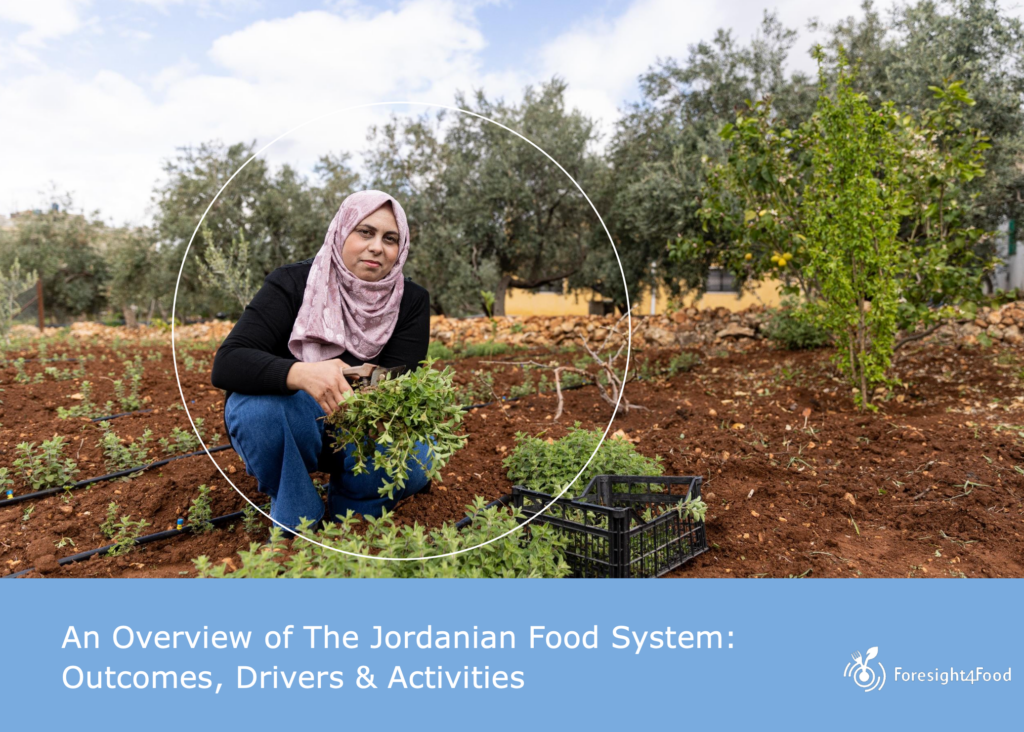
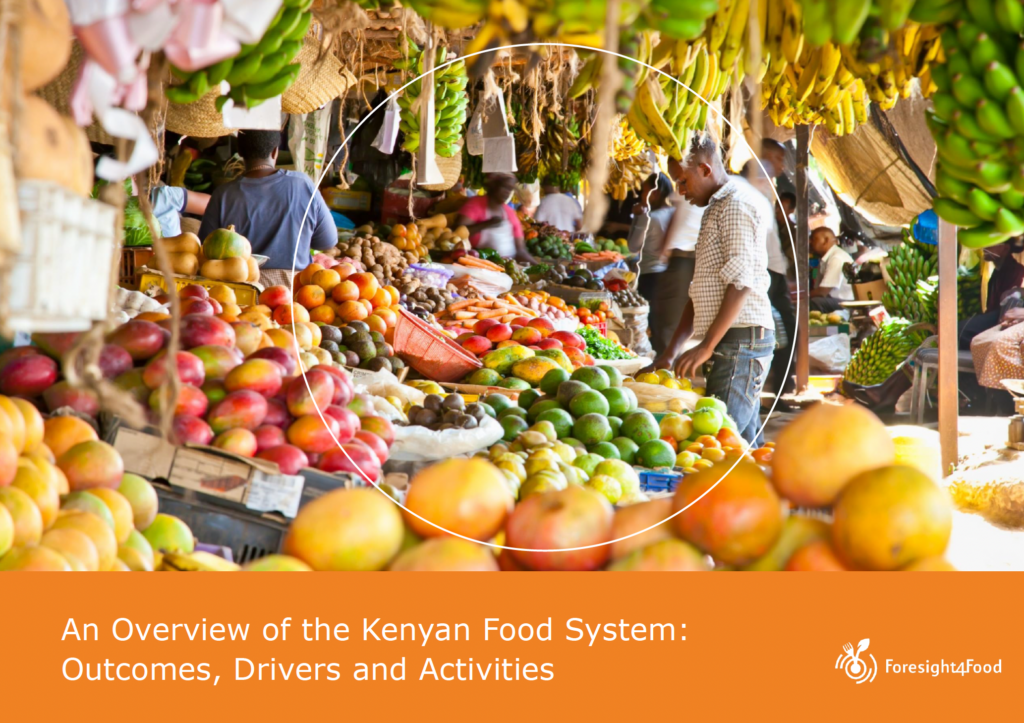
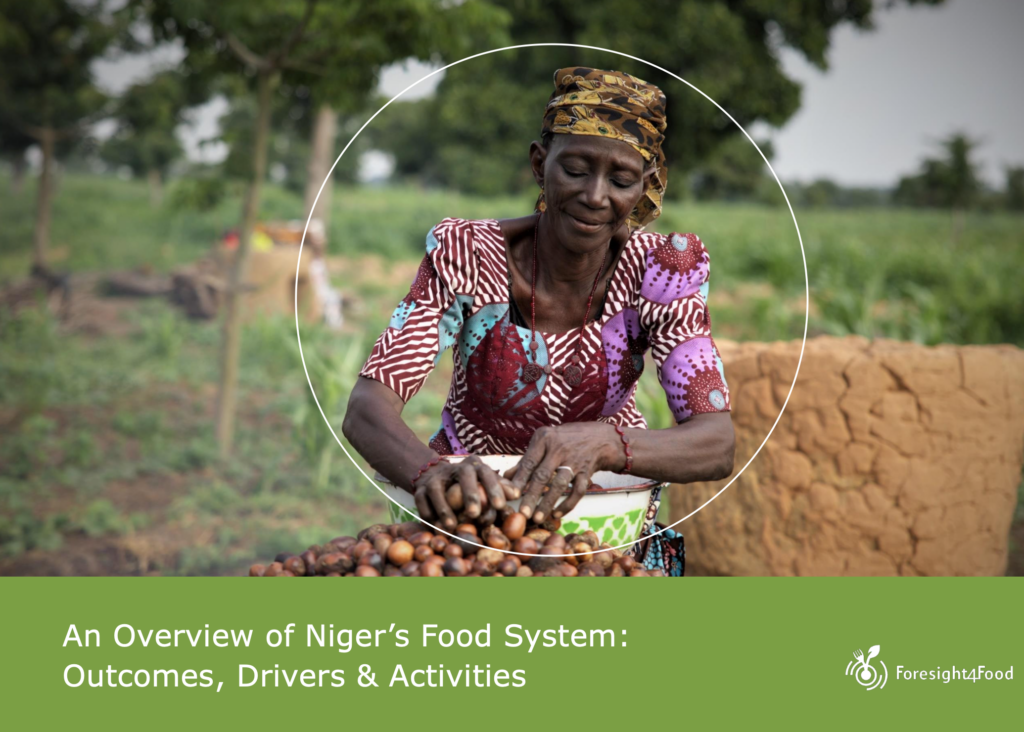
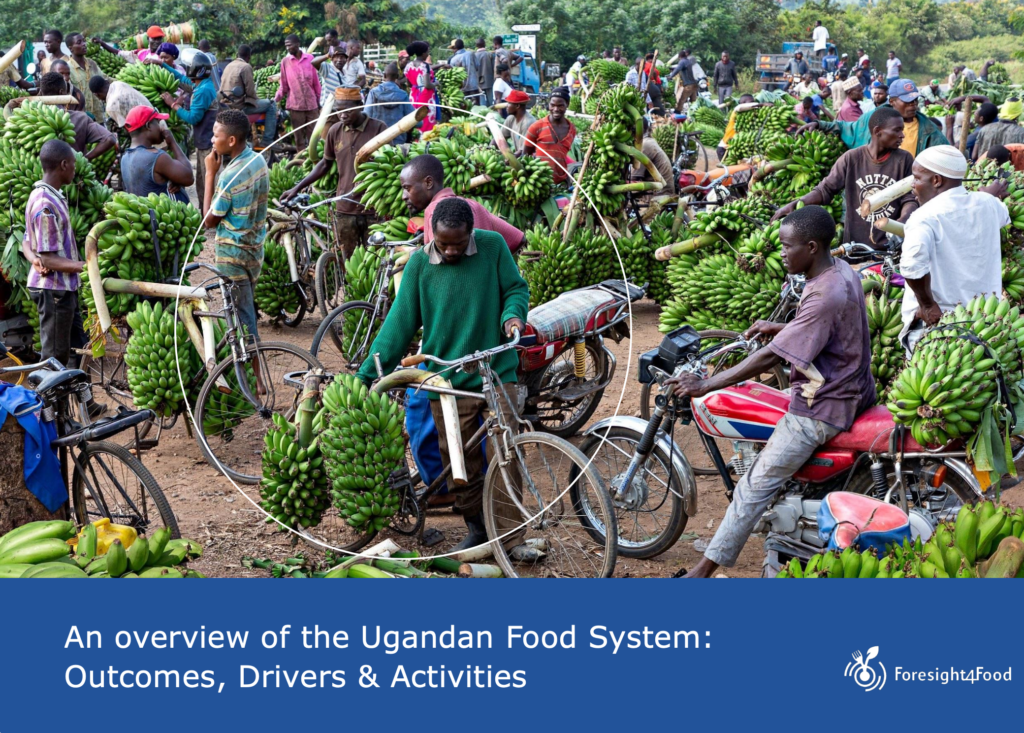
Read and download reports
The preparations for the 4th Global Foresight4Food Workshop are well underway. A diverse group of participants are expected to join and use this opportunity to share their ideas and insights as well as connect with a growing community of foresight practitioners. In regard to this, we asked Dr. Rathana Peou Norbert-Munns, Sustainable Development, Agrifood System Policies and Climate Foresight Planning Specialist at FAO and a valuable member of the Foresight4Food steering group to share some thoughts and her expectations from the workshop.
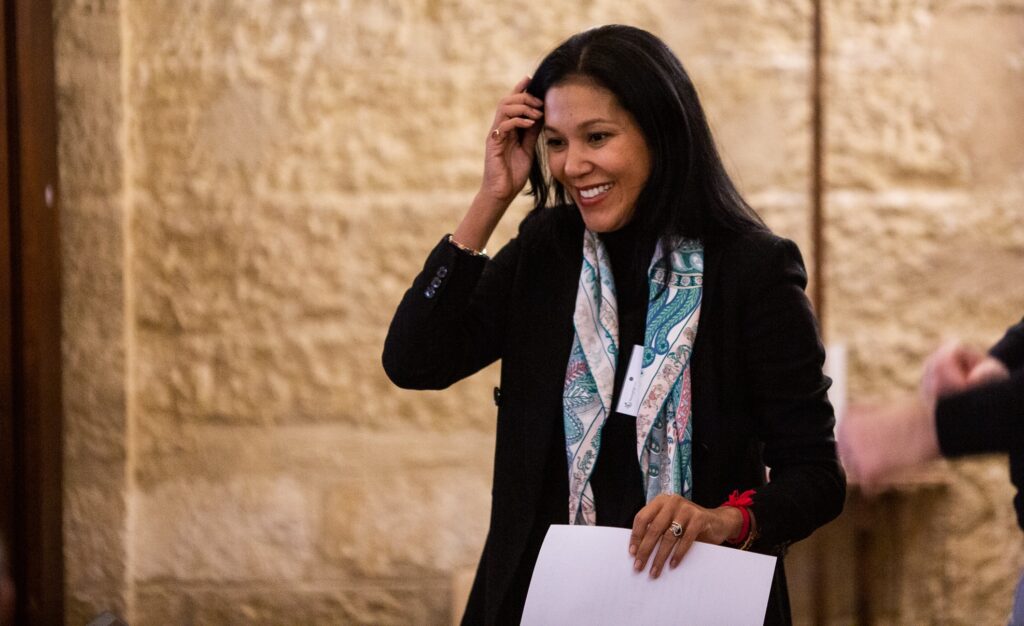
The biggest challenge our world is facing that keeps me up at night…
If I had to pinpoint the most significant challenge, it would undoubtedly be climate change. However, as a foresight planning specialist, I’d say that a forward-thinking planning approach helps various stakeholders recognize not only the widely acknowledged issues but also those that are just beginning to emerge, the so-called early signals. These insights enable us to map out risks across multiple time horizons and envision plausible futures and encourage us to rethink our current actions and adopt innovative approaches which are urgently need it. Ultimately, while these concerns sometime disrupt my sleep, it definitely fuels my daily actions with a clear, long-term vision for sustainable change.
What I look forward to in the 4th Global Foresight4Food workshop
My expectations are set high to leverage the tool of Foresight for Food System Transformation effectively. In a global polycrisis, there is a pressing need for innovative and strategic thinking to guide decisions that ensure sustainable food systems.
This year’s theme of the Foresight4Food Global Workshop captures the essence of what we aim to achieve: a shift in how we envision and shape the future of food systems. It promises to be a crucial platform for sharing insights, fostering collaborative efforts, and enhancing the capabilities of practitioners through knowledge exchange and community building. It is an opportunity to connect with a diverse network of experts and stakeholders, all driven by the common goal of transforming food systems for a better future. By creating a safe space for discussion and reflection, the workshop will challenge us to consider innovative accelerators for our work and identify necessary changes in our approaches.
“This year’s theme of the Foresight4Food Global Workshop captures the essence of what we aim to achieve: a shift in how we envision and shape the future of food systems.”
The workshop will also allow us to critically assess vested interests within the food systems, ensuring that our solutions are inclusive and equitable, truly embodying the principle of leaving no one behind.
On a personal level, I expect that the insights I’ll gain from the workshop will be integral to refining approaches developed for key programs in the Asia Pacific region. By learning the latest foresight methodologies and emerging trends, I aim to reflect with an increasing community of practitioners and find avenue to collaborate more effectively with stakeholders to implement resilient and sustainable food policies and practices.
Some ways to make the workshop more effective, my two cents
To ensure the workshop has a lasting impact on cross-sector collaborations and actions towards food system transformation, Foresight4Food must foster an environment of honesty where participants feel secure in openly sharing both challenges and innovative ideas. Encouraging creative and bold thinking is essential, as it will drive the development of groundbreaking strategies that transcend traditional sector boundaries and catalyze meaningful changes through transformative foresight.
Foresight4Food is organizing its 4th Global Workshop in June titled “Reframing Food Futures: Making Foresight Transformative”. To raise the tip of the curtain on this exciting event, we have asked Mohammad Monirul Hassan, Foresight4Food Country Facilitator and Global Alliance for Improved Nutrition (GAIN) Advisor, to share some of his thoughts and expectations. Here is what he has to say:
As a food systems practitioner, what keeps me up at night
Bangladesh has made significant progress in food security and nutritional status over the past decade, with a growth rate of food production much higher than population growth. The country’s food grain production self-sufficiency has been sustainable and stable, and access to food has improved over time. However, the country still faces challenges in ensuring food and nutrition security for its growing population of around 170 million, projected to reach over 186 million by 2030.
The recent COVID pandemic and the subsequent Russian-Ukraine war have put enormous pressure on the food supply in the country, as Bangladesh is a net food importing country. We have achieved self-sufficiency in rice and some other products; however, the country is still dependent on wheat imports, edible oil, lentils, pulses, and spices. Due to the depreciation of Bangladesh’s Taka against the US Dollar, import costs have increased significantly which impacted the price of commodities both in the food and non-food sectors. The lower-income households are struggling to meet daily needs due to income losses and price hikes.
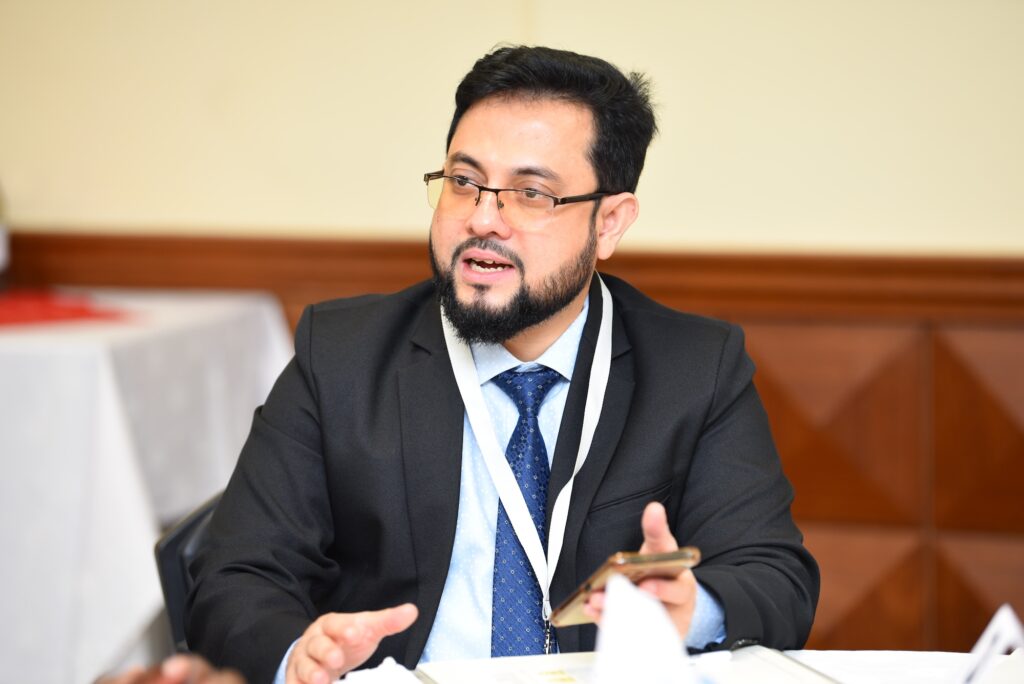
The recent COVID pandemic and the subsequent Russian-Ukraine war have put enormous pressure on the food supply in the country, as Bangladesh is a net food importing country. We have achieved self-sufficiency in rice and some other products; however, the country is still dependent on wheat imports, edible oil, lentils, pulses, and spices. Due to the depreciation of Bangladesh’s Taka against the US Dollar, import costs have increased significantly which impacted the price of commodities both in the food and non-food sectors. The lower-income households are struggling to meet daily needs due to income losses and price hikes.
As a Bangladeshi citizen and a food systems practitioner, a thought that concerns me is that the emerging negative trends and uncertainties like climate change, population growth, income inequality, agricultural labor scarcity, and barriers to access to safe and nutritious food may push back the decade-long achievement of the food and nutrition security of the country in the long run.
Climate change adaptation is the key priority in Bangladesh. Bangladesh is one of the most vulnerable countries in the world to climate change impacts. Developing climate-resilient technologies that exhibit tolerance to drought, flood, heat, cold weather, and salinity can help mitigate production losses caused by the frequent occurrence of extreme weather patterns anticipated due to climate change. Alongside conventional staple crops like rice, wheat, and maize, more focus is given to advancing technologies for protein-rich crops such as pulses and beans, as well as vitamin-rich fruits and vegetables. Enhanced breeds of cattle and poultry that possess the ability to endure harsh climatic conditions are being developed.
The focus is given to enhancing productivity through advances in crop, livestock, and fisheries management, either individually or in combination with genetic enhancements. Improved management methods in agriculture can enhance profitability for producers while also promoting sustainability by optimizing the use of inputs such as seeds, fertilizers, pesticides, and water, and lowering the environmental impact of farming. To improve the food and nutritional situation, more emphasis needs to be placed on coordination, enhancing partnership and policy coherence, and strengthening implementation means.
FoSTr’s support in Bangladesh’s vision of sustainable food systems
Food system transformation is high on the political agenda in Bangladesh with the formulation of the National Food and Nutrition Security Policy 2020, its Plan of Action (PoA) 2021-2030, National Agricultural Policy 2018, and Bangladesh’s contribution to the UN Food System Summit 2021 and the UNFSS +2 Stock Taking Moments (STM). Bangladesh has outlined its “Making Vision 2041: A Reality-Perspective Plan of Bangladesh 2041”, Dhaka Food Agenda 2041, Smart Bangladesh Vision 2041, and the Bangladesh Delta Plan 2100, which depict the country’s aspiration and preparation towards a developed nation.
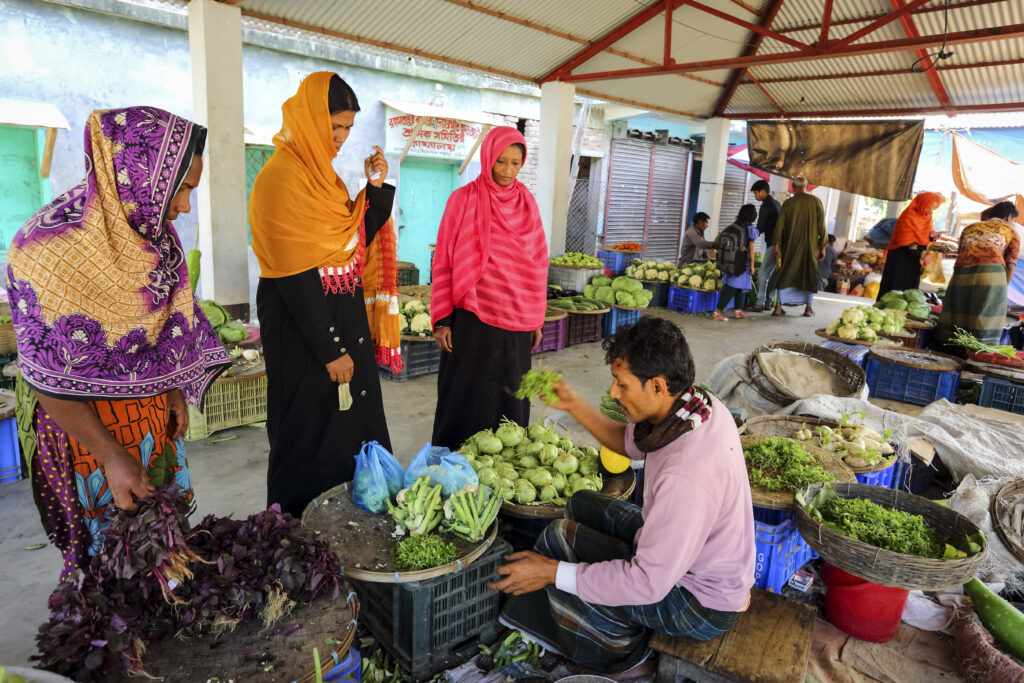
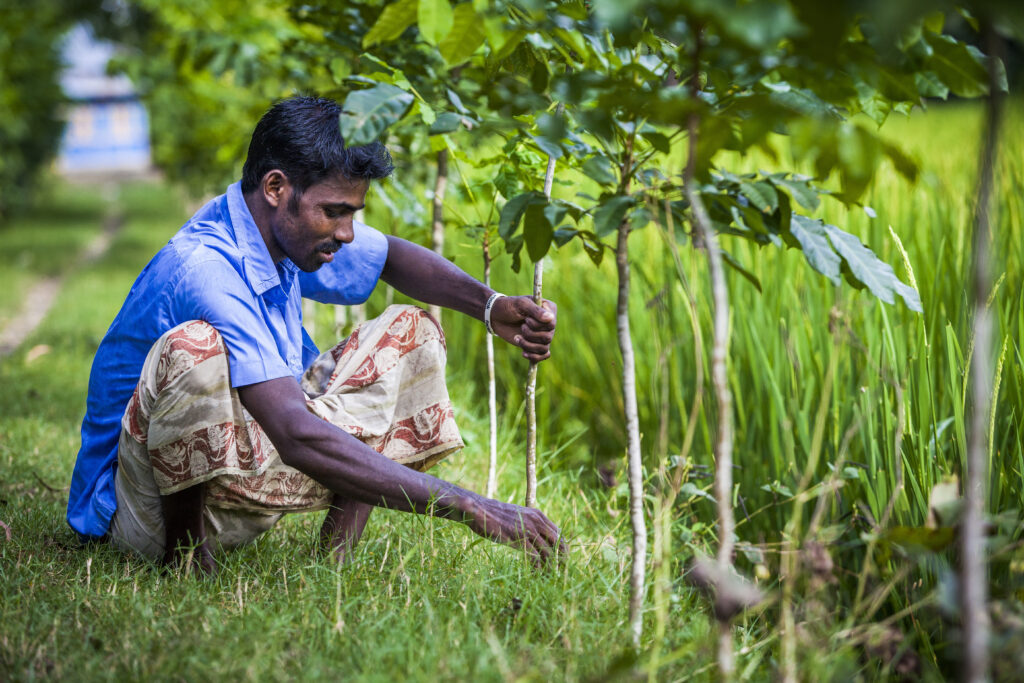

To support that, the Foresight for Food Systems Transformation (FoSTr) program is providing a flexible decision-support facility to support Bangladesh with evidence-based foresight and scenario analysis that goes along the country’s vision to work towards sustainable food systems in Bangladesh.
As part of reporting to UNFSS STM+4 (2025) and fulfilling the Honorable Prime Minister’s commitment to UNFSS, foresight analysis of the food systems will complement the data, research, risk analysis, and scenarios development for the future food systems and provide necessary guidance for food systems transformation.
Expectations of the Foresight4Food Global Workshop experience
For this year’s Global Foresight4Food Workshop, the theme is “Reframing Food Futures: Making Foresight Transformative”. What I seek from this workshop is an opportunity for cross-country learning about using foresight tools, their drawbacks, and ways for improvement for better foresight analysis, as well as areas of collaboration, partnerships, and future investments for the country’s food systems transformation. I also think this will be a wonderful opportunity to showcase how Bangladesh is transforming its food systems with its various challenges.
From a personal point of view, I expect that the learning and insight of the workshop will help me understand the food systems transformation agenda in Bangladesh. It will also help me in policy advocacy in prioritizing areas and activities that build sustainable and resilient food systems.
Another aspect of the Foresight4Food Global Workshop that I hope for is that it will create space for highly interactive dialogue, igniting creativity and sparking actionable progress on the foresight agenda, offering cutting-edge updates on foresight practice and applying foresight to country realities.
The workshop will contribute to understanding how other countries are transforming their food systems, what works and what doesn’t, what matters most, and what supports are required, etc. The workshop will be a great opportunity where you’ll be able to build networks, partnerships, investment opportunities, and investment progress tracking and implementation. Moreover, the workshop will help governments reframe some of the initiatives and prioritize them based on the political economy contexts.
All in all, it will be truly exciting to see energetic participation from food systems researchers, practitioners, and government and private sector representatives gathered under one roof to talk about making foresight transformative.

